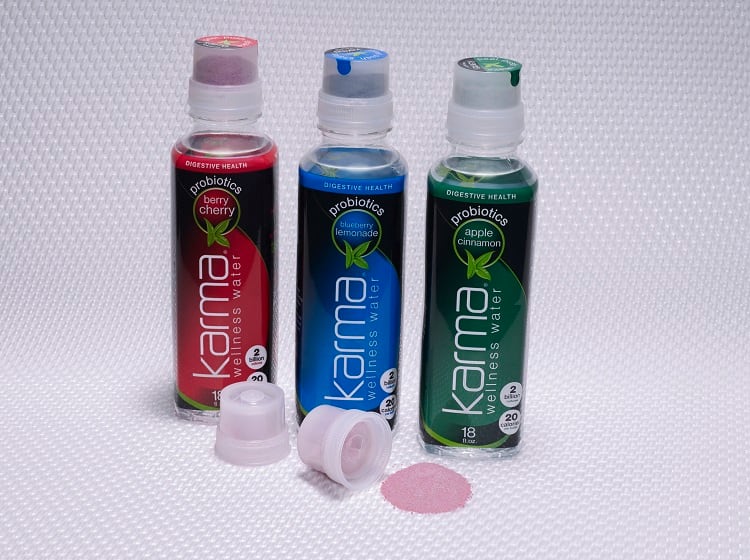In terms of the types of probiotic products that resonate the most with consumers, manufacturers do not necessarily have to reinvent the wheel when developing new functional beverages, according to Ganeden.
“Consumers want products that they’re already consuming,” Ganeden vice president of scientific operations, David Keller, told BeverageDaily. “They want added functionality to those products.”
Evolution of probiotic drinks
Probiotic beverages used to be mainly limited to dairy-based drinks in the refrigerated aisle just a few years ago, according to Keller.
Now beverage manufactures have access to probiotic strains such as GanedenBC30, which can survive in a broader range of liquid applications because it is a spore vs. a vegetative cell, Keller said.
“The best way to think of a spore is: when you buy a seed it’s dormant until it’s in the right environment. This spore is what allows the probiotic to go into many products that vegetative probiotics can’t (typically) be added to,” he said.
“Your traditional probiotic strains have limitations.”
As a result, the prevalence of beverages fortified with probiotics such as functional water and HPP juice, alongside products like kombucha, have exploded in popularity.
Additionally, Ganeden has extended its probiotic applications to shelf-stable products with Staimune, an FDA GRAS and non-GMO ingredient which utilizes the inactivated cells of GanedenBC30.

The development of Staimune offers consumers increased options when it comes to functional beverages with immune health benefits, and opens up opportunities for manufacturers to provide these benefits in beverages where probiotics can’t survive, such as shelf-stable drinks.
Consumers embrace probiotics
Respondents to the company’s survey put beverages in the top five most purchased products; with cold beverages in the number three spot. What’s more, even more consumers would be willing to purchase a beverage with an added functional benefit such as a probiotic strain or digestive and immune support claims.
More than three-quarters (78%) of respondents were also willing to pay an additional 5% for beverages containing probiotics, while 27% of millennial respondents are willing to pay 20% or more.
Expanding knowledge of probiotics
Earlier this year, the Council for Responsible Nutrition and the International Probiotics Association worked together to develop a set of scientifically-based voluntary guidelines with the goal of helping those in the industry self-regulate and promote the use of probiotics in order for consumers to identify a “quality probiotic.”
“One of things, as an industry, we’re doing is putting out guidelines to help self-regulate and promote how probiotics can be used in the right way,” Keller said.
Under the guidelines, CRN and IPA, have made labeling recommendations which encourages members to list quantitative amounts of probiotics in a product in the form of Colony Forming Units (CFUs) and to identify the genus, species, and strain for each microorganism in the product.
“I think the more self-regulation we do, it’ll make (federal) regulators less likely to step in,” he added.
CRN and IPA are aiming to have all companies manufacturing food and beverage products containing probiotics implement these recommendations by January 2018.
